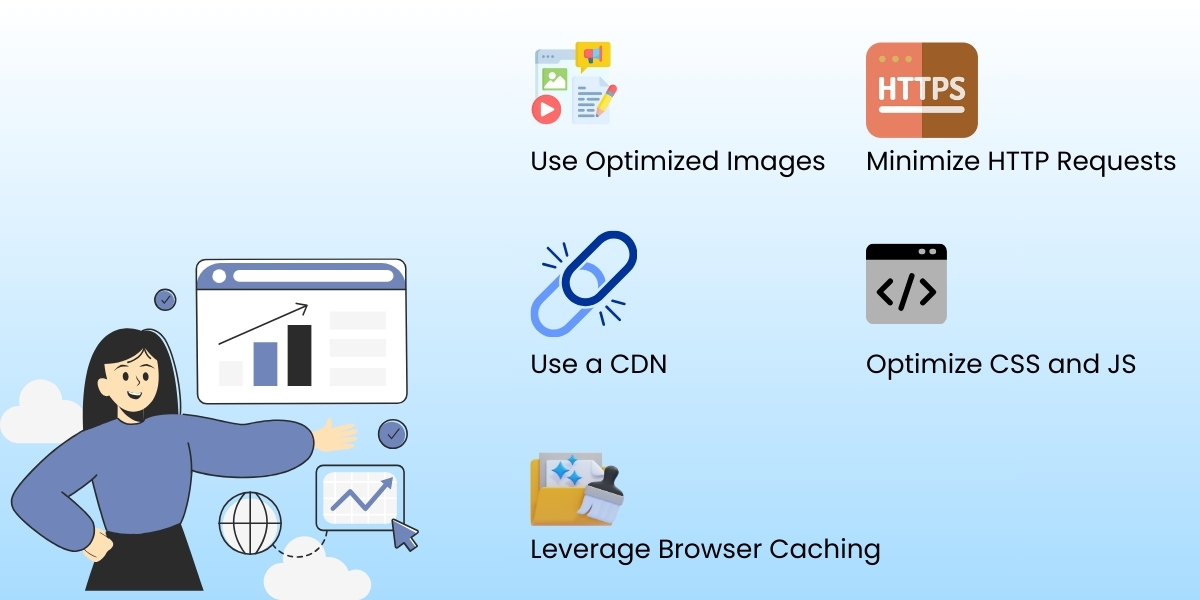In the digital world of today, every second counts. Website page speed is critical not only for user experience but also for search engine optimization. But why is page speed so important for SEO? Let’s delve into how fast websites tend to rank higher in search results and how you can make your website faster.
Why Page Speed Matters
1. User Experience
Page speed first and foremost is a critical factor that influences user experience. Studies show that the expectation of most users about website loading time is less than three seconds. If it takes more time to load, then bounce rate becomes higher; people will bounce out of the site even before it finishes loading completely. Such a high bounce rate may cause a downfall in your Google rankings since Google aims at giving its users the best experience ever.
2. Search Engine Rankings
Google has clearly stated that page speed is a ranking factor in their search algorithms. Google started introducing Core Web Vitals in 2021 under the page experience signals which comprises metrics particularly related to speed, responsiveness, and visual stability. Web sites that meet or beat those benchmarks are likely to rank higher in search results and thus increase their chances of getting more visibility as well as potential traffic.
3. Mobile Optimization
Optimization in terms of speed will also be necessary because mobile browsing is up in the trend. Google uses mobile-first indexing, meaning that the mobile version of your website will be used for most of the ranking purposes. The rankings and customers that visit their smartphones will be at stake if your site does not speed up on mobile.
4. Conversion Rates
A slow-loading website can adversely affect the conversion rates. Whether it is an e-commerce-based website, a blog or a portfolio, when users face long loading times on your website, they become less likely to engage within your content or make the purchase. A well-optimised fast website makes users stay for more and raises chances for conversion.
5. Competitiveness
Many competitive industries these days. Speed, in particular, web speed is one characteristic that can surpass the other firms in competition. Those customers who discover your page opens easily will probably come for your help instead of competing firms since their websites have bad speed performance.
Speed Up Your Web Page
1. Use Optimized Images
Images often make up a big chunk of a website’s load time. You can easily reduce load times by compressing images and using the right file formats. Tools like TinyPNG or ImageOptim can help you easily compress images without losing quality.
2. Minimize HTTP Requests
Each element on a webpage, including images, scripts, and stylesheets, requires an HTTP request. Combining files, using CSS sprites, and limiting the use of unnecessary plugins can reduce the number of requests and accelerate the loading time.
3. Leverage Browser Caching
Browser caching allows browsers to store certain elements of your website locally on users’ devices. This way, when they return to your site, the browser can load it faster. Configure your caching settings in your web server or use plugins if you’re using platforms like WordPress.
4. Use a Content Delivery Network (CDN)
A CDN distributes your website’s content across multiple servers around the world. When users access your site, they are served from the server closest to them, reducing loading times. Services like Cloudflare or Amazon CloudFront can be excellent options for implementing a CDN.
5. Optimize CSS and JavaScript
It also minifies CSS and JavaScript files, removing all of the redundant white spaces, comments, and characters which could slow down your website. Many tools and plugins can automate this.
Therefore, page speed is a fundamental component of SEO that impacts user experience, search rankings, and conversion rates. With the digital landscape changing constantly, it has become a necessity to pay more attention to website speed than before. The time invested in optimizing your site for speed will not only better your user experience but prepare your site for better performance with regard to SEO.
Boost your website speed and SEO performance.
Empirical Edge delivers expert page speed optimization to improve rankings, user experience, and conversions for US businesses.
Frequently Asked Questions
Page speed refers to how fast a web page loads for users. Faster pages improve user experience, reduce bounce rates, and help ranking signals for search engines like Google. Empirical Edge optimizes page speed through performance tuning and best coding practices to boost SEO.
Slow page speed leads to higher bounce rates and lower user engagement — which negatively impacts search rankings. Search engines prioritize fast, responsive sites. Empirical Edge improves page performance to enhance SEO outcomes.
Factors include large image files, unoptimized code, slow server response times, poor caching, and inadequate hosting.
Absolutely — mobile page speed is critical due to Google’s mobile-first indexing.
Improvements vary, but many sites show better rankings and engagement within weeks of performance optimization.








